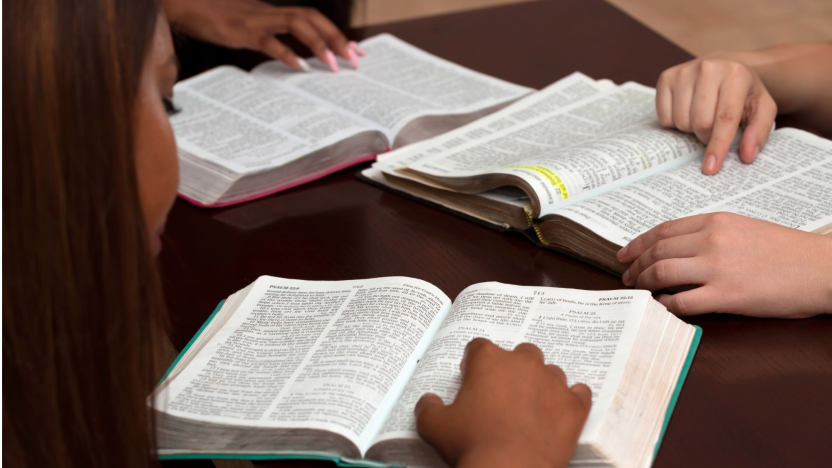Why We Trust
A social psychologist wrote in the Harvard Business Review "that human beings are naturally predisposed to trust — it's in our genes and our childhood learning — and by and large, it's a survival mechanism that has served our species well. That said, our willingness to trust often gets us into trouble."1 He further posits that "It all starts with the brain. Thanks to our large brains, humans are born physically premature and highly dependent on caretakers."
He cites researcher Paul Zak, in neuroeconomics, in identifying oxytocin that it can “boost both trust and trustworthiness between people playing experimental trust games.” And that other research has also shown how intimately oxytocin is connected with positive emotional states and the creation of social connections.
It makes the correlation between a child at birth and the connections formed with the mother. So, if trust is “hardwired” in us, how do we learn who to trust and when?
Who Do We trust?
Humans have turned to their strength to solve all our problems. We have become the only guide in our lives. How did we get started on this road of self-help? In searching for the origins of this phenomenon, I came across a timeline in the online encyclopedia Wikipedia. It credits Samuel Smiles (1812–1904) as publishing “the first self-consciously personal-development "self-help" book — entitled Self-Help — in 1859. Its opening sentence: "Heaven helps those who help themselves," provides a variation of "God helps them that help themselves."2
We trust entirely too much in ourselves. Yes, a healthy dose of confidence in who we are as children of God and His guidance will give us a blessed assurance as we navigate life. However, the total dependence on self that is the product of the self-help era is eroding our trust in God.
The learning of a lifetime will have to be unlearned to fit us for heaven. A healthy dose of distrust in self will place us on the road to trust in God.
What About Trusting Others?
I find it tedious to be in the company of overachievers. They constantly worry about their profile, pace towards their next goal, and beating everyone at the game. The game of life, that is.
Yet, we often gravitate to trust others, their achievements, their guidance, and directions, even above our discretion, thinking that surely others must know best! However, the Bible has a thing or two to say about that. "Trust ye not in a friend, put ye not confidence in a guide: keep the doors of thy mouth from her that lieth in thy bosom. For the son dishonoureth the father, the daughter riseth up against her mother, the daughter in law against her mother-in-law; a man's enemies are the men of his own house" (Micah 7:5-6).
I've come to believe we should set aside our quest to be the best. Instead, be all you can within the level of gifts and competencies God has given you.
When It's Broken
When the Bible says, "Take therefore no thought for the morrow: for the morrow shall take thought for the things of itself. Sufficient unto the day is the evil thereof" (Matthew 6:34), it's simply saying, child of God, learn to have Him direct your life! That’s how we break trust in ourselves. Trust God!
Learning to Trust God
- "Trust in the Lord with all thine heart; and lean not unto thine own understanding" (Proverbs 3:5).
- Let the Holy Spirit reveal the yet uncommitted areas in our lives.
- "But the Lord is faithful, who shall establish you, and keep you from evil" (2 Thessalonians 3:3). Yes, evil is ever-present at our doors, trying to drive us from God. The conflict that rages within—trust in God or self and others?
- "It is impossible for us in our own strength to maintain the conflict; and whatever diverts the mind from God, whatever leads to self-exaltation or to self-dependence, is surely preparing the way for our overthrow. The tenor of the Bible is to inculcate distrust of human power and to encourage trust in divine power" (Patriarchs and Prophets, p. 717.1 Ellen Gould White).
Call to Action
When trust in self and others is eroded, it is good! Learn to trust, lean on, and depend on God (1 Peter 5:7). He is the one who made you (Genesis 1:27), has your best interest at heart (Jeremiah 29:11), and knows you best (John 15:13-15). There is no explaining to him your motives and intentions (Jeremiah 17:13). He knows all that. Speak with Him as a friend; He understands you and can clear mountains for you. He will pick you up when you fall and set you on the path of success and life abundantly. He will return for you shortly (John 14:3) to take you home with Him. Trust God!
All scripture taken from the King James Version.
- Kramer, Roderick M. "Rethinking Trust." Harvard Business Review (2009). Retrieved 24 June 2022. <https://hbr.org/2009/06/rethinking-trust>
- Wikipedia contributors. "Self-help." Wikipedia, The Free Encyclopedia. Wikipedia, The Free Encyclopedia, 15 May. 2022. Web. 24 Jun. 2022.




